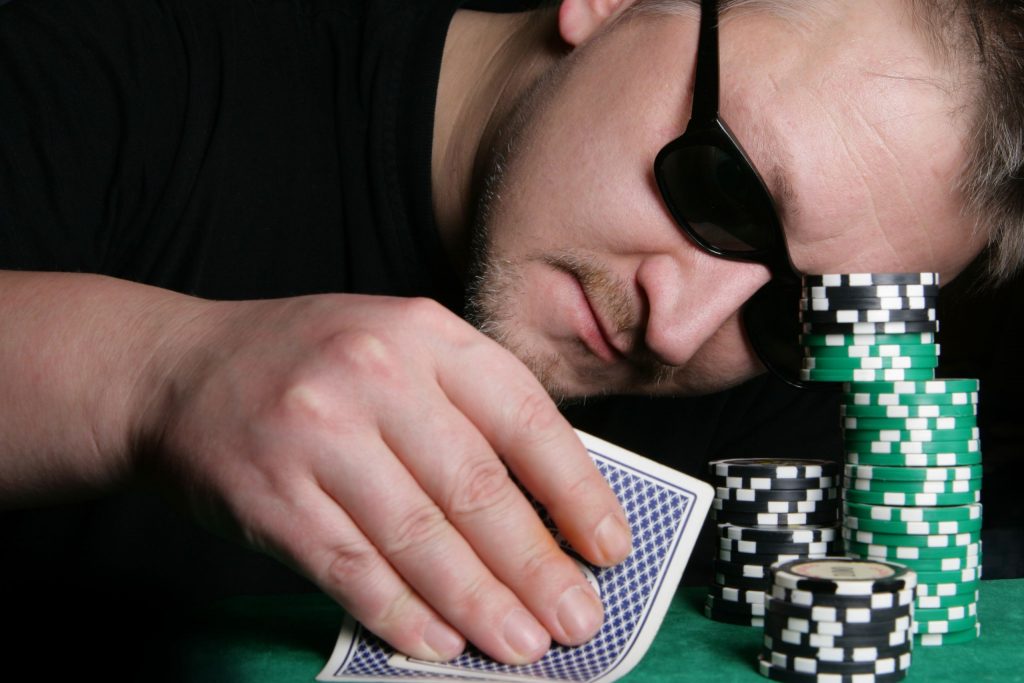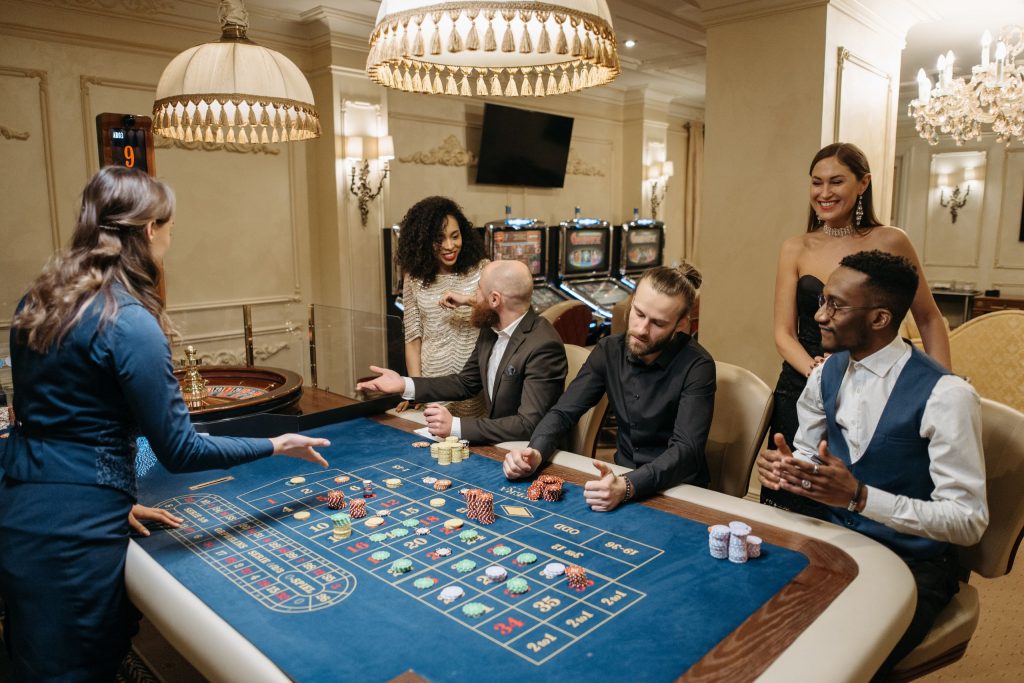
Have you ever seen how gamblers appear to have their own little rituals or fortunate charms? It’s amazing! Often assuming that these eccentricities would change the odds in their advantage, many bettors rely mostly on patterns, superstitions, and rituals to influence their choices. Whether it’s donning a certain clothing on game day, carrying a lucky coin, or following a precise ritual before making a wager, these actions reveal a deep-seated human inclination to find significance in chance events. These ceremonies provide a consoling sense of control in a world where results could seem random and chaotic. They not only provide greater fun but also appeal to our natural impulse to make destiny, therefore transforming the wild adrenaline of gambling into a more personal trip.
The Illusion of Patterns in Random Events
Gamblers looking for trends or patterns—including fortunate numbers or hot streaks—to make sense of random events show an interesting psychological phenomena called pattern identification. Should a gambler believe they are on a “hot streak,” their chances of winning once more are more probable should they have won many times consecutively. Likewise, some people might have certain numbers they find lucky depending on past success or personal significance. Even although every result in games of chance is random and independent, this trend search might provide one consolation and control.
Still, fate may contradict accepted knowledge. Every game or bet gives the same opportunities; just because someone has won many times does not mean they are more likely to win once more. Cognitive biases here help gamblers to fall into traps like the Gambler’s Fallacy, the false notion that previous occurrences will affect present ones. Knowing that these behaviors are entirely psychological helps gamblers make better judgments and realize that luck is just that—luck.

Common Superstitions Among Gamblers
In gambling, superstitions are a remarkable fusion of cultural legacy and personal conviction. Wearing fortunate clothes is a common belief wherein players typically choose their favorite shirt or set of clothes they think will bring them good fortune. This custom is universal; for instance, in certain Asian countries red is seen as a fortunate color, hence individuals could dress in red to draw luck while gambling. Many Western gamblers, on the other hand, could have a “lucky charm,” such as a four-leaf clover or a rabbit’s foot, thinking these symbols can assist change the odds in their advantage.
Avoiding certain numbers is another often occurring superstition. While some gamblers could choose numbers like 7, which is usually seen as a sign of good fortune, many gamblers avoid the number 13, thinking it unfavorable. Different civilizations have somewhat different values in these areas. Many Chinese people chose number eight during games of chance as it is highly valued in Chinese society for its connection with riches and success. Rituals are also quite important; players could utter a fortunate word before making their wagers or tap the table three times. These ceremonies provide one control in an uncertain surroundings, and the reassuring schedule may improve the whole gaming process.
The Role of Confirmation Bias
Many times, gamblers discover they are locked in a cycle of selective remembering that supports their superstitions. Even if it’s only a little one, when they win they often recall that moment well and credit their fortunate rituals or talents. If someone wins after donning their “lucky shirt, for example, they may think that this shirt is the secret to their success. On the other hand, people easily overlook all the times they missed wearing the same garment. Their superstitions or patterns seem to be working because of this selective attention on victories, which keeps them playing in hopes of repeating that success. Consider a gambler who, upon pushing the button in a certain manner, wins large at a slot machine. Though slot machines run only on chance, they might begin to think this approach is a successful one. Those losses usually disappear from memory when they miss the following twelve times using the identical method. This strengthens their conviction in the pattern they believe they have found, which makes them anxious to attempt once again believing a significant victory is only over the horizon. This sort of thinking supports their superstitions and keeps people addicted, thereby making it more difficult to stop the cycle of gambling.

Gambler’s Fallacy vs. Rational Thinking
In gambling, the gambler’s fallacy is the false notion that previous random occurrences might affect future results. Following a protracted losing run on a game like roulette, for example, someone may persuade themselves that a victory is “due” and that they would most certainly land a winning play shortly. This kind of thinking could cause dangerous actions, like raising bets in an attempt to recoupment of losses. This kind of thinking keeps people engaged even in cases where the odds are stacked against them as they feel that chance will play in their best advantage.
By contrast, a rational approach to probability reminds us that every occurrence is independent of the previous. Just because you have lost multiple times in a succession does not indicate a victory is forthcoming. No matter past results, the chances stay the same with every fresh turn of the wheel or roll of the dice. By emphasizing the intrinsic unpredictability of chance-based games rather of being caught up in the false narrative of previous outcomes impacting future ones, gamblers may make more logical judgments. Understanding the gambler’s fallacy helps players to control their gaming more sensibly and prevent unneeded risks.
Why Beliefs Persist Despite Evidence
In gambling, people typically hang on superstitions and magical thinking as these ideas provide a feeling of control in an erratic surroundings. Engaging in gambling exposes people to the unpredictability of chance, which may be unpleasant and stressful. Superstitions provide a psychological safety blanket—that is, a fortunate charm or avoidance of certain numbers. They give players the impression that they may affect the result, thereby enabling them to feel somewhat more in control even in cases where they are really at the will of chance. This sensation of control could be somewhat comforting, especially in high stakes events.
These ideas could also help one get confidence and lower stress. Someone’s self-esteem and enthusiasm to bet might alter if they think a certain habit or charm would bring luck. Assuming they have a secret edge, this additional confidence might motivate them to gamble more often or take more big risks. But the comfort these concepts provide is generally brief when the reality of chance eventually kicks in and breaking away from the cycle of gambling and accompanying cognitive distortions becomes much more difficult.

Conclusion
Knowing the cognitive and emotional ideas that affect gambling habits helps gamblers to make better judgments and encourage ethical enjoyment of the game. Understanding the influence of superstitions, false ideas about chance and skill, and emotional depictions of gambling disorder (GD) helps people to see the hazards connected to gaming. This insight may enable players participate in gambling as a kind of fun instead than a means of emotional control or financial gain, therefore reducing prejudices that contribute to either excessive or problematic gambling. In the end, encouraging correct gambling practices and knowledge of the negative effects of GD helps to improve well-being and guarantees that gamblers enjoy their experience by reducing any damage.







